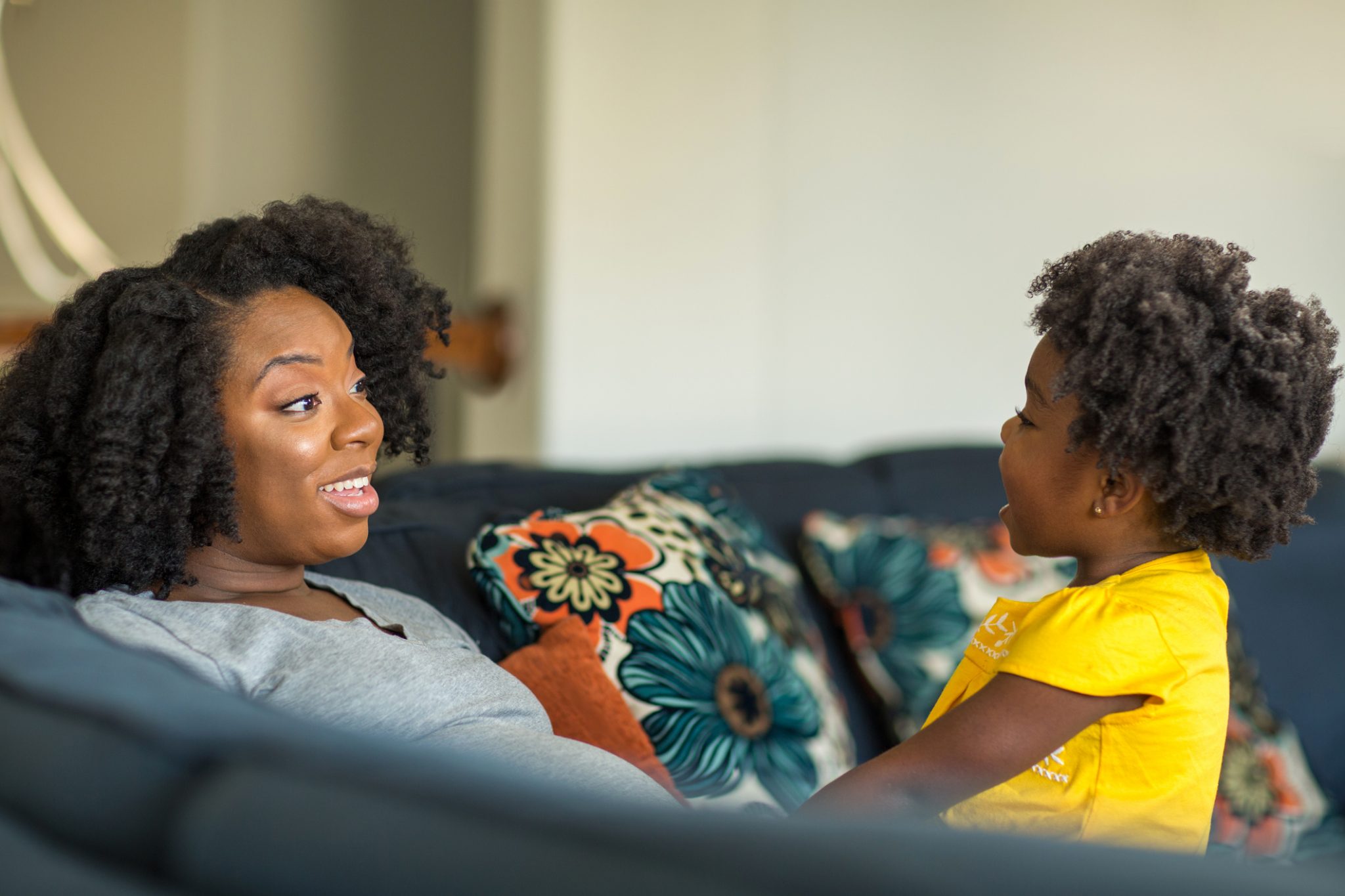Ways to Help Kids Cope with Coronavirus Fears

November 10, 2021
Whenever kids are exposed to a traumatic life event they often look to their parents or other adults for support. The COVID-19 pandemic is one of those situations. Normal routines are disrupted. Children’s lives are in disarray. And imaginative young minds may run wild, fed by the news and nervous talk.
Children – especially those grade-school age and younger – are highly susceptible to such upset in their lives. But they are also greatly influenced by what you say and what you do. And while social distancing is critical during these times, it may also compound children’s fears by removing them physically from their friends, family, and the comforting routines of everyday life.
So how do we help our youngsters cope with these emotions, not just now but moving forward? Our experts offer the following tips:
1. Consider your child’s stage of mental and emotional development. Different ages can handle different types of information, from the simple to more complex. Tell the truth in a way they can understand, while including some facts, some feelings, some actionable steps, and lots of hope and encouragement.
2. Take time to listen to their fears and concerns and try to validate their feelings. This is a scary time for everyone. Acknowledge how what is happening is frightening and that we all share these feelings.
3. Let your children know that many people are working on trying to fix the problem, that adults all over the world are searching day and night in order to develop solutions, and that the situation is temporary.
4. Talk about things that remain the same and keep a routine so that life does not feel too chaotic.
5. Ask them for ideas about what they think could help them stay in touch with others during this period of isolation like connecting through virtual channels with friends and loved ones.
6. Be a role model for the behaviors you wish them to follow, especially social distancing.
7. Set them up for success, avoid situations in which kids will have a tough time social distancing.
8. This may be a perfect moment to grant some special privileges, do projects together, develop a list of fun activities for all to share during this period of quarantine. Provide children with some authority over certain aspects of their lives so that they don’t feel too out of control or powerless. Ask them for ideas about what would make getting by easier for them.
9. The best way to prevent long-term trauma in children is to remain connected to them about how they are feeling and coping emotionally. Ask if they have questions or concerns. Children may often imagine answers to questions or concerns if those issues are not openly discussed and explained – “answers” that may be far worse than the actual truth. If you see your child developing signs of withdrawal, sadness, anxiety, or become overly fearful, it could be a sign for you to connect with a mental health professional in order to get your child additional support.
Through it all, always remember the importance of self-care, so that you have the energy needed to be a strong role model for your children.
The material provided through HealthU is intended to be used as general information only and should
not replace the advice of your physician. Always consult your physician for individual care.
Find a doctor near me
Can Isolation During a Pandemic Lead to Depression?

Can too much isolation lead to mental health issues?
Drugs & Alcohol Are No Way to Cope

Heightened anxiety can manifest itself in a variety of harmful behaviors, not least among them the increased use of drugs and alcohol.
Find a doctor near me

Feel Pandemic Guilt? You’re Not Alone. Here’s How to Overcome It.
The coronavirus pandemic has stirred a variety of emotions and feelings within everyone.

What If I Like Being Quarantined?
Adjusting to life outside quarantine? Learn coping strategies for anxiety and stress from Dr. Mishra. Manage your return to normalcy. Schedule your wellness visit today.

Maintaining Your Fitness Goals with Wearables
Maintain your fitness goals using wearables. Learn about smartwatches, fitness trackers, and more. Improve your health journey today.

Why Kids Need Vitamin D Supplements in the Winter
Kids need vitamin D in winter. Learn why supplements are important for bone health and how much your child needs. Consult your doctor.
